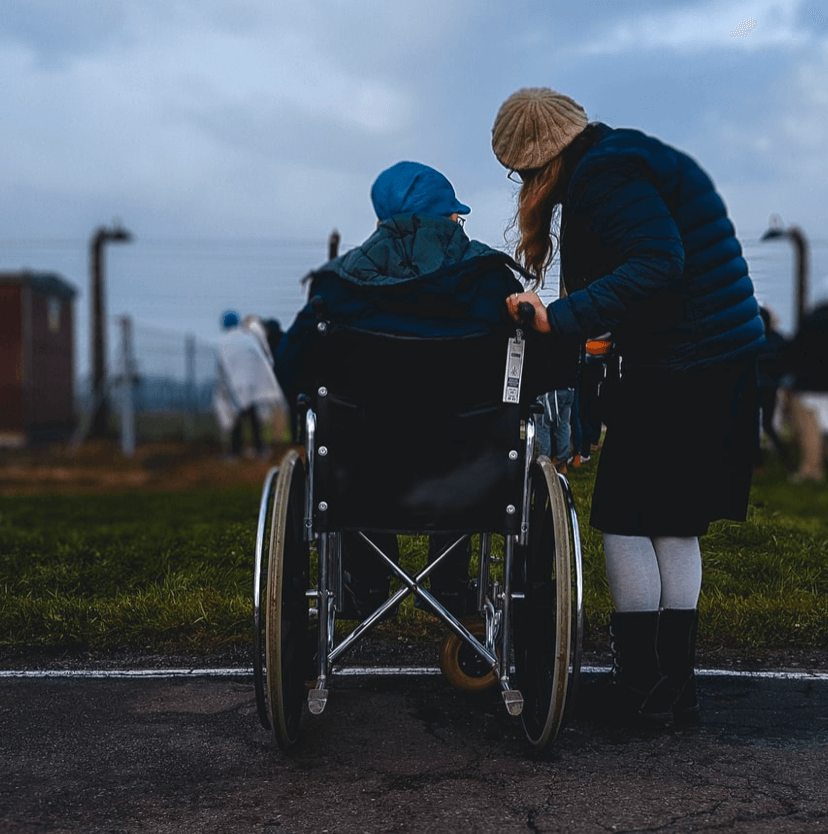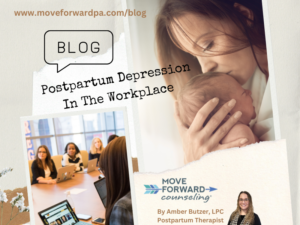Being a caregiver for a loved one can be stressful during the best of times. Now, amidst a global pandemic COVID-19, the usual stressors of being a caregiver are compounded by fears, worry, uncertainty, and isolation.
Caring for someone who is ill, frail, or disabled is a full-time job. It requires all your energy and can be taxing on your physical and mental health. That is why it is so important that you take care of yourself. Get help when you are feeling overwhelmed. Online counseling and therapy can be a great tool in helping you cope. Move Forward offers telehealth services for clients throughout the state of Pennsylvania, including Harrisburg, Philadelphia, Pittsburgh, and Lancaster.
Here are some other practical tips to help you care for yourself and your loved ones during uncertain times:
1. Stay Informed
It is important that you stay up-to-date on the latest protocols and guidelines for your area. New information is coming out every day regarding symptoms of COVID-19 and ongoing health concerns. Knowledge is power but be careful to not overload yourself with worrisome statistics. Get your information from reliable sources, like the Centers for Disease Control and Prevention.
2. Focus on Your Health
When we are feeling depressed or down, we tend to practice unhealthy behaviors such as binge eating or turning to substances like alcohol or drugs. Now, especially, is a time to focus on being healthy. Take care of yourself so you can take care of your loved ones. Practice healthy eating habits, good hygiene, exercise when you are able, take walks, get outside, and get enough sleep.
3. Have a Support System
Having a support system is so important as a caregiver, but even more so when isolated. Find people you trust to lean on. Have regular virtual calls and check-ins. Stay connected to others. If you have other friends or family who can help share the caregiving responsibility, take them up on it. You might think you can do it all, but breaks are crucial to your overall mental and physical health.
4. Maintain a Routine
Routines are good for giving your day structure and purpose especially when you are being a caregiver. Try to establish set times during the day for meals, exercise, and rest. You may need to adjust your old routine to fit pandemic times. Try switching out a daily/weekly outing for something fun you can do at home.
5. Engage Those You are Caring For
There are a lot of fun activities that can happen within the home. You can do art projects, puzzles, cooking, or other projects together. Find ways to keep both your minds occupied on pleasant activities instead of current concerns. Write cards to loved ones, send emails or videos. Get your loved one engaged in activities they can do alone, so you can have time for self-care—books, crossword puzzles, etc. These times are challenging but they can also be cherished.
6. Plan for an Emergency
What will you do if you get sick and can no longer care for your loved one? Have a plan in place. If you need to isolate, find a friend or family member who may be able to step in during that time. Stock up on necessities so you won’t have to leave the house.
7. Manage Your Stress
Have regular check-ins with yourself. Stress can easily compound leading to bigger problems if not addressed. Develop healthy ways to manage your stress. Seek support from a mental health professional via online counseling or therapy services. They can help teach you healthy coping mechanisms. Practice mindfulness meditation or breathing exercises in times of overwhelm. Write in a journal. Practice gratitude.
The most important thing you can do right now is care for yourself so you can care for your loved one.
8. Ask and Allow for Help
If you are overwhelmed with all your caregiving responsibilities, ask for help. Allow a neighbor to pick up groceries for you, or a friend to take over for a few hours while you run an errand. If friends or family are unable to step in to relieve you temporarily, consider turning to a professional organization. There are several that can provide in-home assistance a few hours a week.
Ready to begin counseling in Pennsylvania?
Get started to feeling better today. Our professionally-trained and licensed counselors have openings for online therapy. Just call our office at 717-462-7003×1 and speak to our administrative assistant to schedule an appointment. You don’t have to feel overwhelmed and stressed all the time, there are ways to cope and find calm again. We can help.































